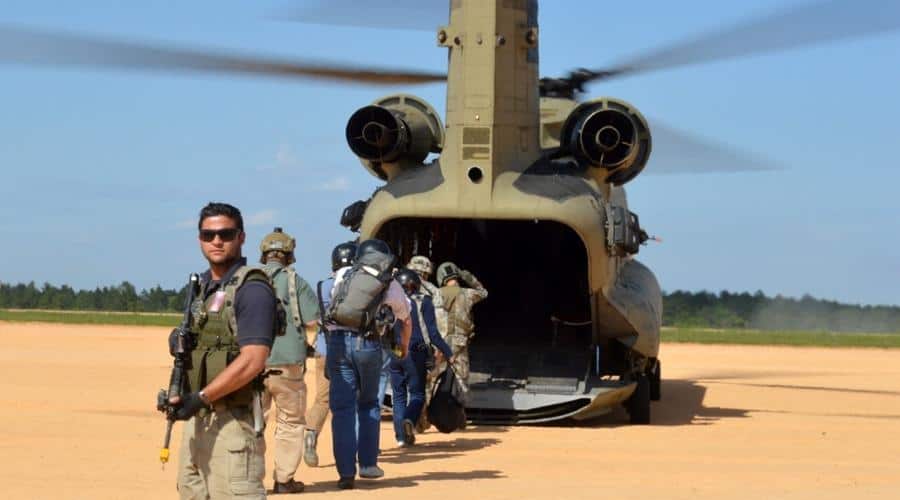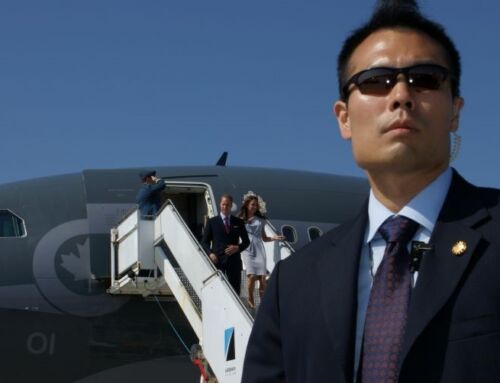Jennifer, Assistant Special Agent in Charge in the Diplomatic Security Service’s San Francisco Field Office, became a DSS Special Agent in 1999. In this Q&A interview, she shares some exciting and fulfilling assignments and her insight into the most challenging aspect of her job.
When did you become a DSS Special Agent and why did you choose this career?
I became a DSS federal agent, and I chose this career because I met a Foreign Service Officer in a college class. I knew I wanted to be a civil servant because I come from a long line of civil servants and military folks, but I wasn’t sure really what I wanted to do in the government. When this Foreign Service Officer told us about the State Department, I thought, “Wow, the government will pay you to travel and live around the world? That is very cool!” So, I researched the State Department in Los Angeles, and it turns out it was a DSS field office. When they brought me in and were telling me about the investigations and the protection, I thought, “Oh my goodness! I get to be a detective; I get to be a Special Agent; and I get to live and work all over the world? Wow, sign me up!” I was hired as an Investigative Specialist in 1997 in the Los Angeles field office. In 1999, I became a Special Agent and was shipped off to Boston.
Where have you been posted and how long do DSS Special Agents stay at each post?
I’ve been posted in Los Angeles, California; Boston, Massachusetts; Minneapolis, Minnesota; Washington, DC; and am currently San Francisco, California. Also in Kiev, Ukraine; Paris, France; and Lisbon, Portugal. Typically, a DSS or even Foreign Service posting will last two years with the option to extend to three. Though in our nicer countries like London, Paris, Rome, postings will be three years. In the more challenging countries, like Iraq, Afghanistan or Pakistan, postings are one-year tours.
What has been your favorite assignment and why?
I have two favorite assignments. My first favorite assignment was Paris, France. Because I was a French major in college, getting paid to be stationed in Paris was like a dream come true. It was something I never could have afforded as a kid, but here I was actually working in Paris. I got to do all the things I’d read about my entire life – go to Claude Monet’s house and see his gardens in bloom in spring; see the Eiffel Tower; walk down the Champs-Élysées. That was just the most amazing thing that had ever happened to me at that point.
My second favorite assignment, for totally different reasons, was Kiev, Ukraine. I was there during the Maidan democracy riots and the first Russian invasion. And, as a history major also besides French, getting to be an active part of history was just unbelievable. I was watching basically a reenactment of the French Revolution. People were stacking up barricades any way they could and fighting against the government for their freedom and to be a true democracy. Because there were security challenges, as the security officer I got to do all the things that we’d been trained for all our life. Similar to the military, we train and train and practice and practice, but may not ever get to use all of those skills. I got to use them, so that was just the most amazing experience that I’ve ever had.
What would you say is your most memorable or fulfilling experience as a DSS Special Agent?
My most memorable and fulfilling experience as a DSS agent was when I led a team that rescued kidnapped Americans that were being held hostage in eastern Ukraine during the separatist riots. The team included myself, the Embassy doctor, an FBI agent, and the security officer for the aid organization that they had been working for. There was a non-profit aid organization in eastern Ukraine that was providing humanitarian relief and they were being kicked out. As they were all being escorted to the border, the two Americans were separated and held hostage. I led the team that went out and worked with the military to figure out their location. We fed information back to the Secretary of State, who then negotiated for their release and then I took the team into separatist-controlled war territory, and we successfully brought them back home.
What is the most challenging aspect of being a DSS Special Agent?
The most challenging aspect of being a DSS Agent is that sometimes we’re asked to do really difficult missions and we have to balance that between getting the mission done and keeping the people safe. An ambassador may come to me about something they would like to do that may not be safe. I could say no as a security officer, I could keep us huddled in the embassy, because that would keep us 100% safe. But that doesn’t get the mission done, that doesn’t forward diplomacy. As a DSS Special Agent, you have to find that balance between getting the mission done and keeping people safe.
Do you have any advice for those who are applying for the Clarke DS Fellowship program?
My advice for those of you applying for the Clarke DS Fellowship is to do your homework. I used to sit on our board of examiners and the candidates who were the most successful were the ones who knew the most about the Diplomatic Security Service. They had read about our missions, they had explored the State Department website, and they had researched what embassies do overseas. That will make you successful. And don’t forget that you do have to pass a pre-employment Physical Readiness Test as you complete the two-year fellowship program, prior to receiving a final offer an onboarding as a DSS Special Agent.
How can candidates prepare for the PRT?
If you don’t have a physical fitness routine, start getting one now. It doesn’t have to be anything complicated. You don’t have to bench press like Arnold, you just have to be able to pass the run and do the sit-ups and the push-ups. So, incorporate that into your routine as you’re getting ready for the test.
Photo: Courtesy of Diplomatic Security Service. DSS Special Agents during an embassy evacuation and response training with the U.S. Army.






